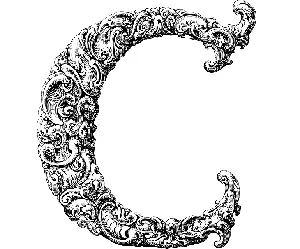Procedural Programming with C
Undergraduate course, University of Giresun, Department of Computer Engineering, 2023
 C is a robust and flexible programming language employed in numerous applications, ranging from operating systems and embedded systems to game development and high-performance computing. As a low-level language, it offers significant control over hardware and memory management, enabling developers to write highly efficient and optimized code. This level of control makes it perfect for performance-critical tasks where speed and resource management are paramount. Its influence is also seen in many modern languages, which have adopted its syntax and features, solidifying C’s role as a foundational language in computer science and software development.
C is a robust and flexible programming language employed in numerous applications, ranging from operating systems and embedded systems to game development and high-performance computing. As a low-level language, it offers significant control over hardware and memory management, enabling developers to write highly efficient and optimized code. This level of control makes it perfect for performance-critical tasks where speed and resource management are paramount. Its influence is also seen in many modern languages, which have adopted its syntax and features, solidifying C’s role as a foundational language in computer science and software development.
Ders Öğretim Planı
Announcements
The resources
- V22.0201 Computer Systems Organization course
Chapter 1: Introduction to C Programming
- Origins and evolution of the C language
- Features and benefits of using C
- Setting up a development environment
- Basic structure of a C program
- Variables, data types, and operators
- Input and output functions
- Compilation process and execution
Chapter 2: Control Flow
- Decision-making statements (if, else if, switch)
- Looping statements (for, while, do-while)
- Break and continue statements
Chapter 3: Arrays and Strings
- Declaring and initializing arrays
- Manipulating arrays: accessing, modifying, and traversing
- String manipulation and string library functions
Chapter 4: Functions
- Function declaration, definition, and calling
- Function parameters and return values
- Recursive functions
Chapter 5: Pointers
- Understanding pointers and memory addresses
- Pointer declaration and initialization
- Pointer arithmetic
- Dynamic memory allocation (malloc, calloc, free)
Chapter 6: Structures
- Structure declaration and initialization
- Accessing structure members
- Nested structures and arrays of structures
Chapter 7: File Handling
- Working with files in C
- Opening, reading, and writing files
- File positioning and error handling
- File I/O using standard libraries
Chapter 8: Advanced Data Types
- Enumerations and typedef
- Bitwise operators and bit manipulation
- Bit fields
- Unions
Chapter 9: Preprocessor Directives
- Macros and their usage
- Conditional compilation
- File inclusion and header files
- Debugging using preprocessor directives
Chapter 10: Advanced Concepts - Part 1
- Memory management techniques
- Function pointers and callbacks
- Understanding static and dynamic libraries
- Recursion: principles and applications
Chapter 11: Advanced Concepts - Part 2
- Introduction to data structures (linked lists, stacks, queues)
- Implementation and usage of data structures
- Introduction to algorithms (sorting, searching)
- Time and space complexity analysis
- Variadic functions
Chapter 12: Error Handling and Debugging
- Common C programming errors
- Debugging techniques and tools
- Exception handling with try-catch blocks
- Defensive programming and error handling strategies
Chapter 13: Introduction to C++ (Optional)
- Basic differences between C and C++
- Introduction to object-oriented programming
- Classes, objects, and constructors
- Basic input/output in C++
Chapter 14: Project and Review
- Individual or group project using C programming concepts
- Review of key concepts and topics covered throughout the course
- Q&A session and final assessment
Sample projects
🗒️Questions and answers
🗒️Multiple choice questions